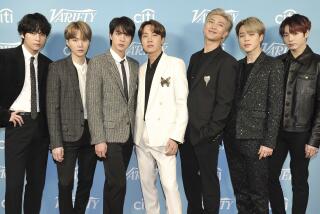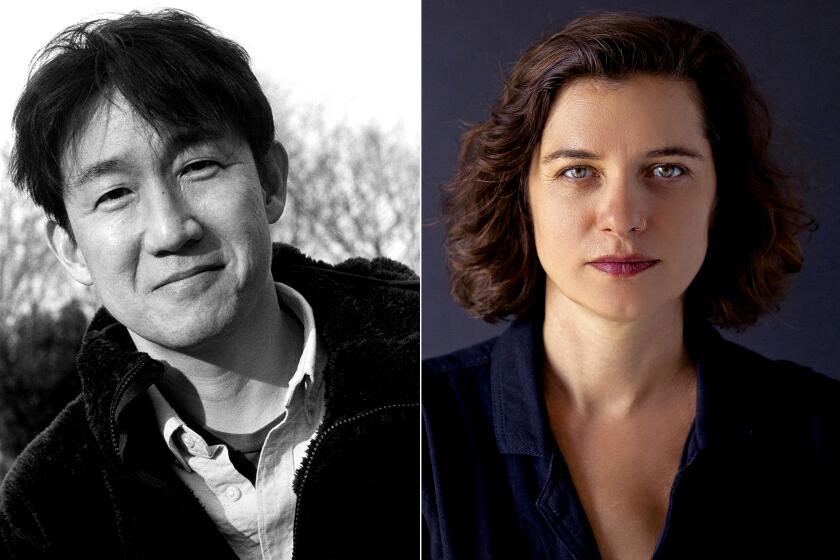How Piers Morgan should have handled transgender author Janet Mock
“The media’s insatiable appetite for transsexual women’s bodies contributes to the systematic othering of trans women as modern-day freak shows, portrayals that validate and feed society’s dismissal and dehumanization of trans women.”
– Janet Mock, in her new memoir “Redefining Realness”
Well, Piers Morgan stepped right into that one.
This week, the CNN host caused a stir for what some say was his insensitive handling of an interview Tuesday with transgender advocate and author Janet Mock, who was on his show to promote her new book.
Many in the trans community took issue with Morgan’s description of Mock as “a boy until she turned 18” and his focus on how she revealed her gender identity to her boyfriend.
Morgan was so stung by the criticism that he invited her back to his show Wednesday.
His face was pink with frustration as he demanded to know: “Why have I been vilified for being transparently supportive of you? I don’t get it!”
.@PiersMorganLive I was not “formerly a man.” Pls stop sensationalizing my life and misgendering trans women. #redefiningrealness— Janet Mock (@janetmock) February 5, 2014
Mock, 29, who maintained her composure throughout, calmly replied, “Being offensive and being kind are not mutually exclusive things. We can be good people but be ignorant. It’s about understanding.”
Maybe Morgan would not have stumbled so badly had he read her book before having her on.
Instead, he seemed to have based his interview on a 2011 Marie Claire magazine profile of Mock that was called “I Was Born a Boy” and opened with her trip, at 18, to Thailand for gender reassignment surgery.
It was written in the first person, although Mock said she did not write the piece. In her book, she explained that although it was exciting to see her life story in print, she didn’t feel that the piece -- which was based on interviews, emails and phone calls with her -- “was really my story.”
“That piece should not have been the basis of our interview,” Mock chided Morgan. After all, she added, she had just spent three years writing her memoir, a rich story about her Hawaiian childhood and her years-long path to self-acceptance.
Morgan pressed on: “I want to learn why it is so offensive to say you grew up as a boy … and had surgery to become a woman. Why is it offensive?”
“It’s not about what surgeries I may or may not have had,” Mock said. “It’s not about how I disclose my gender to people. It’s about who I am right now.... I am a fierce trans advocate.”
Had he read her book, he might have come across this passage: “What I want people to realize is that ‘transitioning’ is not the end of the journey. Yes, it’s an integral part of revealing who we are to ourselves and the world, but there’s much life afterward. These stories can earn us visibility, but bail at reporting on what our lives are like beyond our bodies, hormones, surgeries, birth names and before-and-after photos.”
What could or should Morgan have done differently to avoid the wrath of the transgender community?
Here are a few suggestions:
1. Don’t focus on secondary sexual characteristics or on gender reassignment surgery.
“What was the moment after you had it when you looked in the mirror and were finally able to think, ‘Wow, that’s who I am finally supposed to be’?” Morgan asked Mock.
This is the same trap Katie Couric fell into when she invited the actress Laverne Cox onto her daytime talk show and spent most of her time focusing on Cox’s physical transition. “She was born a man and that’s why she’s on our show.” Ugh.
As Mock pointed out to Morgan on Wednesday, “I was born a baby.”
Eli Erlick, a freshman at Pitzer College and political activist who founded the group Trans Student Equality Resources, told me Thursday that this obsession is as predictable as it is offensive. “Is it OK if I ask you about your genitalia?”
2. Don’t tell a transgender woman, “You used to be a man.”
“In 2009, you meet a man. And you fall in love,” said Morgan. “But there’s something you have to tell him … which is that you used to be, yourself, a man.”
After the show, Mock tweeted at Morgan: “I was not ‘formerly a man.’ Pls stop sensationalizing my life and misgendering trans women.”
As Mock writes in her book, she began to understand she was a girl from the age of 3 or 4. ‘I always knew I was a girl,” she wrote.
3. Keep your titillation to yourself.
“How would you feel if the woman you were dating was formerly a man?” tweeted Morgan in a tease for his interview with Mock.
Interesting question, except, as noted above, Mock was never a man.
Many of the tweets that were flying around after Morgan’s interviews were harsh, and many used the word “transphobia” to describe his attitude. “I have spent literally 12 hours being viciously abused by the transgender community,” Morgan told Mock on Wednesday.
I don’t think he deserved all the abuse that was heaped on him. And I do think the transgender community can sometimes be quick to label as “phobic” or “hateful” what is actually ignorance or misunderstanding.
Erlick, however, disagreed with me about Morgan.
“Things are changing,” said Erlick, who was involved in the campaign for the new California law that guarantees rights for transgender students.
“But people in the media seem to think that just because they aren’t openly attacking trans people that they have the right to say whatever they want. Piers Morgan is the perfect example of that. Just because he is not openly shaming Janet doesn’t mean he’s not saying transphobic things.”
More to Read
Sign up for our Book Club newsletter
Get the latest news, events and more from the Los Angeles Times Book Club, and help us get L.A. reading and talking.
You may occasionally receive promotional content from the Los Angeles Times.






